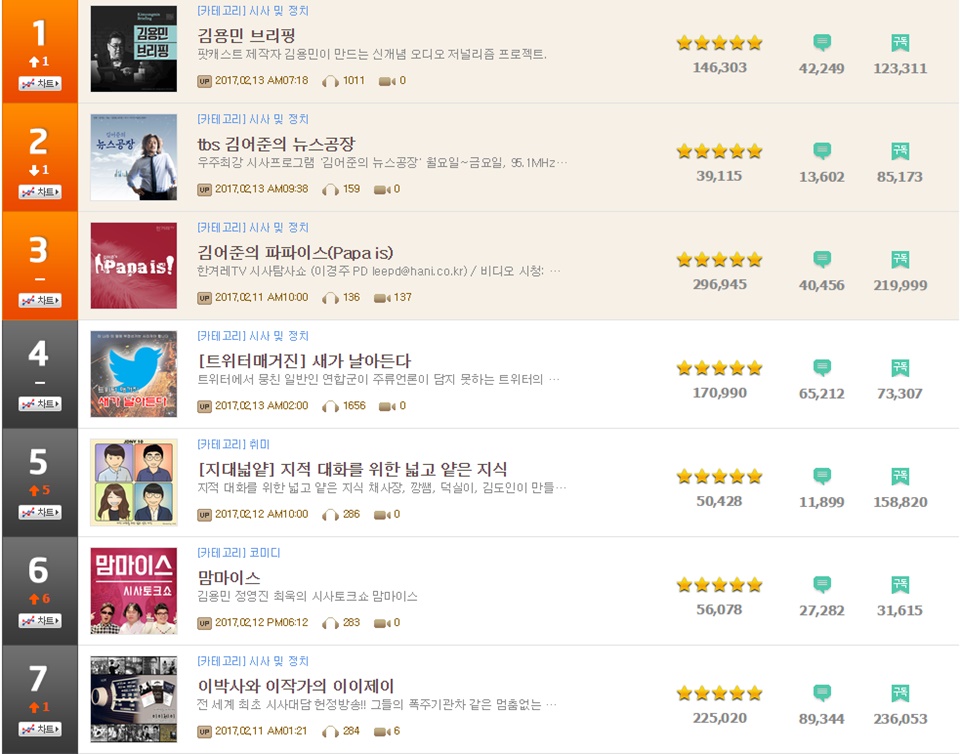
Many people perceive podcasts as “internet radio” programs. As demand for audio content increases, podcasts are quickly becoming a preferred digital media alternative to the radio, converting many radio listeners into podcast fans.
According to the “2017 Podcast User Survey” conducted by the Podcast Platform PodBbang(팟빵) and professor-led Learning Support Team at Hanyang University, podcast users in their 30s and 40s spend about 2 hours and 38 minute a day (around five times) throughout a given day. Men listen to podcasts around 2 hours and 40 minutes a day, slightly longer than women do (2 hours 34 minutes) a day. The respondents signaled that they consume other audio channels significantly less – indicating the reduction up to 42.6 minutes for TV, 20.2 minutes for radio, and 38.1 minutes for Internet in a day.
Most notably, the time spent on podcasts has become the biggest substitute for radio listening time, as the time spent on radio has been reduced by almost 40%. As a result, terrestrial broadcasts are beginning to develop unique content for their own podcasts. There are more than 10 podcasts produced by terrestrial broadcasting companies in the top 50 rankings by PodBbang.
Why do people love listening to Podcasts?
Podcasts are subscription-based media, which means that users are able to listen to them whenever and wherever they want. Such “on-demand” nature of the media provides convenience for people who have sporadic chunks of spare time during the day. Also, bite-sized podcasts make people feel like they have more control over their content consumption.
According to the survey, podcast users were “satisfied with podcasts” (89%) and 84% said they would recommend podcasts to others. The report predicts that “podcast users are highly loyal due to their fanfare to the broadcasting operators, and they are likely to recommend podcasts to people nearby, so the podcast user base will continue to grow.
68.3% of the respondents said that podcasts should be viewed as “media that function as public press, rather than a personal broadcasting station like African TV.” When asked about which categories of content are most frequently subscribed by users, the majority of respondents said news / politics, followed by economy, books / publications, movies, and language.
Podcast as an Ideal ad Seller?
Regarding the effectiveness of advertisements in podcasts, 83.9% of the respondents answered that it would be similar or higher than that of other media. 79.9% of the respondents said that the reason for high Return on Investment of any advertisement is due to “the trust of their own favorite podcast moderator.” Also, “podcast operators keep mentioning about the advertisement again in the middle of an episode” was another big reason, followed by “the format was interesting and interesting”. After all, “The satisfaction of the podcast led to a positive perception of the ad, which led to the search for the actual ad product or to the purchase behavior,” the report said.
Overall, podcasts listeners will continue to grow as well as the number of active podcasts. After all, it is amazing to see the evolution of podcasts, from being a niche medium occupied by tech-savvy comedians and former VJs to becoming a true sounding board for the masses.
source : techforkorea






댓글 남기기